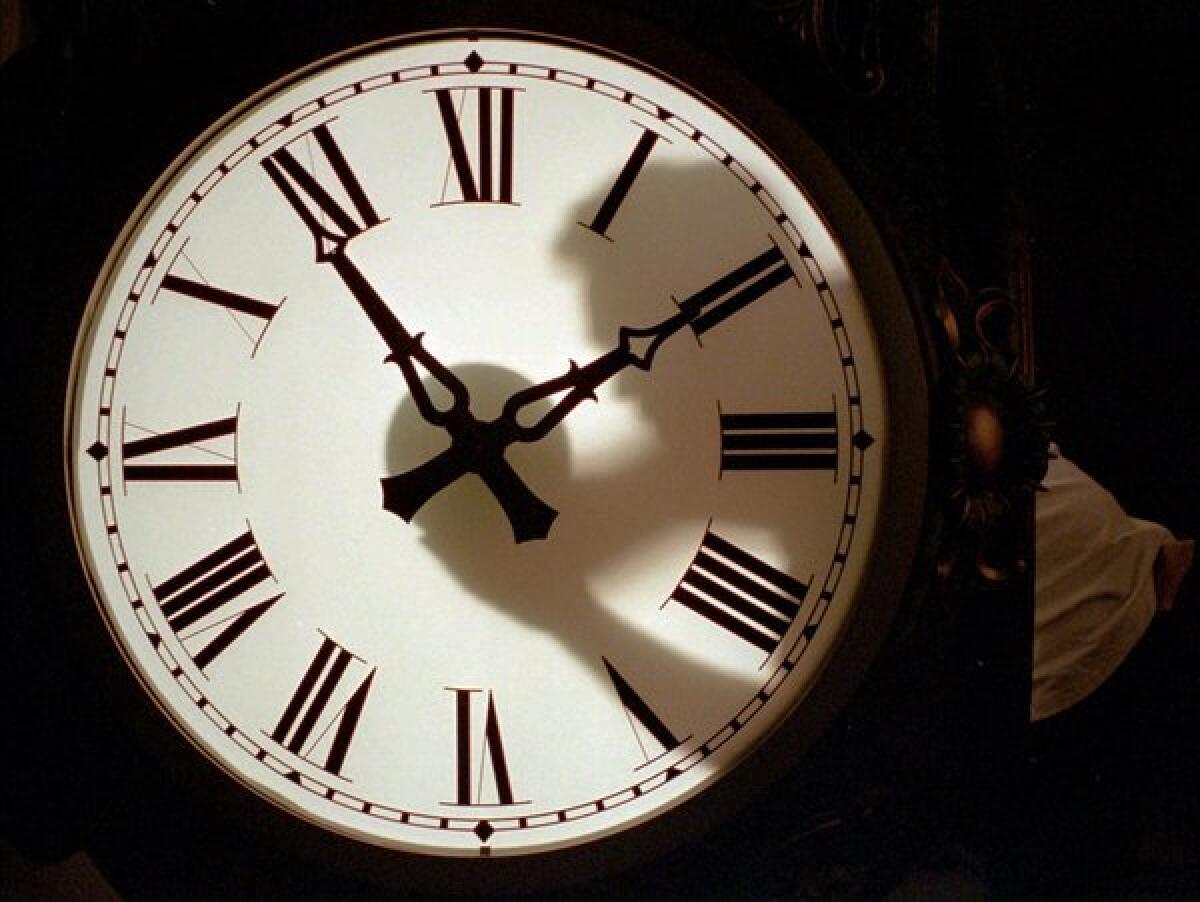Clocks fall back Sunday as Daylight Saving Time ends

Early to bed, and early to rise, makes a person healthy, wealthy and wise, goes the popular wisdom. If you believe that, then this is your weekend as clocks change and most of the U.S. falls back an hour.
The change, officially the end of Daylight Saving Time, comes at 2 a.m. Sunday, when the clocks fall back to 1 a.m. In theory this should give everyone an extra hour of sleep, though how many hours people sleep is often the result of factors other than the clock. The changeover also takes place on the weekend, so what is a rest day can be used in part to offset the chronological changes that for some are akin to jet lag or traveling across a time zone.
Residents of Hawaii, most of Arizona and some U.S. territories don’t have to change their clocks because they never moved them forward in the spring. Those areas do not observe Daylight Saving Time so the shift back to standard never takes place.
Perhaps the biggest misconception about the whole process is that somehow by shifting the clock, people are changing the number of hours of daylight. Wrong. What is changing is how society organizes itself to take advantage of time.
Daylight Saving Time is essentially a creature of the Industrial Revolution and dates from about the turn of the 20th century. Industrial societies are based on time, work shifts, transportation schedules and so on. Agricultural societies are based on daylight, hence the phrase early to bed, early to rise. As societies became more industrial and urban, officials sought to help organize the hours of daylight.
Springing ahead in the spring and summer months allows more time to enjoy outdoor activities. Lights need not be use so energy can be saved, goes at least part of the argument. Tourism gets a boost as well.
By falling back in the autumn months, children get more daylight to travel to school in the morning and parents get to breathe easier in the evening when it is darker.
Still, questions linger about the value of moving the clocks at all and the issue has been frequently debated.
ALSO:
Strict Texas abortion law takes effect
Appeals court halts New York ‘stop-and frisk’ ruling
More to Read
Sign up for Essential California
The most important California stories and recommendations in your inbox every morning.
You may occasionally receive promotional content from the Los Angeles Times.











